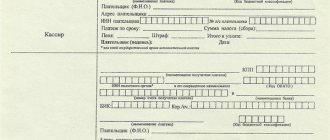How to obtain the right to inheritance by law?
ANO Globus provides legal services in the field of inheritance on an ongoing basis. So, let's figure out how to obtain the right to inheritance according to the law.
For legal assistance, please call:
- 8-909-392-34-24 (WhatsApp, Viber, Telegram, Signal)
- 8-800-101-55-04 (Free call within Russia)
Email address for correspondence: [email protected]
The right to inheritance by law has the spouse and relatives of the testator, who are called to inherit in order of priority according to the degree of relationship. To acquire an inheritance, the heir must accept it.
Inheritance by law takes place when and since it is not changed by a will or inheritance agreement, as well as in other established cases, for example, if the will is declared invalid (Articles 1111, 1131 of the Civil Code of the Russian Federation).
Persons entitled to inherit by law
Heirs by law are called upon to inherit in order of priority according to degree of relationship. The law provides for eight lines of succession. The heirs of each subsequent line inherit if there are no heirs of the previous lines (that is, if they are absent, or none of them has the right to inherit, or all of them are excluded from inheritance or deprived of the inheritance, or none of them accepted the inheritance, or all of them refused inheritance).
Heirs of the same line inherit in equal shares, with the exception of heirs inheriting by right of representation. The share of an heir by law who dies before the opening of the inheritance or at the same time as the testator passes by right of representation to his respective descendants and is divided equally between them.
So, for example, the heirs of the first priority according to the law are the children, spouse and parents of the testator, as well as by right of representation the grandchildren of the testator and their descendants (Articles 1141 - 1145, paragraph 1 of Article 1146, paragraph 3 of Article 1148 of the Civil Code RF).
Acquiring an inheritance
To acquire an inheritance, the heir must accept it. To do this, at the place of opening of the inheritance (the last place of residence of the testator), submit to the notary an application for acceptance of the inheritance or an application for the issuance of a certificate of the right to inheritance. As a general rule, an inheritance can be accepted within six months from the date of opening of the inheritance (death of the testator).
The heir is also considered to have accepted the inheritance when he performs actions indicating its actual acceptance, in particular actions to manage, dispose and use the inherited property, maintaining it in proper condition, which manifests the heir’s attitude towards the inheritance as his own property (Article 1113). , 1115, paragraph 1, article 1152, article 1153, 1154 of the Civil Code of the Russian Federation; paragraph 36 of the Resolution of the Plenum of the Supreme Court of the Russian Federation dated May 29, 2012 N 9).
A certificate of the right to inheritance according to the law is issued to the heirs at the place of opening of the inheritance, as a rule, by a notary at any time after six months from the date of opening of the inheritance. At the same time, the law does not connect the moment when the heir’s right to inherited property arises with the moment of receipt of this certificate. An accepted inheritance is recognized as belonging to the heir from the date of opening of the inheritance, regardless of the time of its actual acceptance (clause 4 of article 1152, clause 1 of article 1163 of the Civil Code of the Russian Federation).
When issuing a certificate, the notary checks the fact of the death of the testator, the time and place of opening of the inheritance, the existence of relationships that are the basis for the calling to inherit according to the law of persons who filed an application for issuance of a certificate of the right to inheritance, the composition and location of the inherited property (Article 72 of the Fundamentals of Legislation Russian Federation about notaries).
For the issuance of a certificate by a notary, you must pay a state fee (notarial fee). You may also be required to pay a fee for legal and technical services in accordance with the established tariffs (parts 1, 2, 7, 8 of Article 22 of the Fundamentals of the Legislation of the Russian Federation on Notaries; clause 17 of the Review, approved by the Presidium of the Supreme Court of the Russian Federation on June 30, 2021) .
The amount of the state duty for the issuance by a notary of a certificate of the right to inheritance according to the law (clause 22, clause 1, article 333.24 of the Tax Code of the Russian Federation):
to natural and adopted children, spouse, parents, full brothers and sisters of the testator - 0.3% of the value of the inherited property, but not more than 100,000 rubles;
other heirs - 0.6% of the value of the inherited property, but not more than 1,000,000 rubles.
In particular, heirs who have not reached the age of majority by the day the inheritance is opened are exempt from paying the state duty (clause 5 of Article 333.38 of the Tax Code of the Russian Federation).
A certificate of the right to inheritance issued on paper by a notary since December 29, 2020 must have machine-readable markings with which you can check its accuracy (Article 5.1, Part 2, Article 45.1 of the Fundamentals of the Legislation of the Russian Federation on Notaries; Part 1, Article 6 of the Law dated December 27, 2019 N 480-FZ).
Rights to certain types of property received by inheritance are subject to state registration, for example, ownership of an apartment. The received certificate of inheritance is one of the grounds for such registration.
Currently, after issuing a certificate of the right to inheritance, a notary is obliged to submit to Rosreestr an application for state registration of the right and the documents attached to it (Parts 3, 4 of Article 72 of the Fundamentals of the Legislation of the Russian Federation on Notaries).
The completed state registration of property rights is certified by an extract from the Unified State Register (Clause 1 of Article 131 of the Civil Code of the Russian Federation; Part 2 of Article 14, Part 1 of Article 28 of the Law of July 13, 2015 N 218-FZ).
Note! Depending on the type of inherited property, the heir becomes a payer of property tax, land tax or transport tax. Income in kind received from individuals through inheritance is not subject to personal income tax (Clause 18, Article 217, Clause 1, Article 358, Articles 389, 401 of the Tax Code of the Russian Federation).
How is the inheritance divided between the wife and children after the death of the husband?
The children and spouse of the testator are classified by law as heirs of the first priority, as his closest relatives.
Accordingly, when dividing the inherited property, their shares will be absolutely equal , although in reality it seems that the surviving spouse receives the largest part of the inheritance.
This is due to the spousal share of the surviving spouse.
Let's figure it out.
The property of spouses in a registered marriage, and acquired during this marriage, belongs to both of them equally, that is, it is their common property (Article 256 of the Civil Code of the Russian Federation).
If at the time of the death of one of their spouses all jointly acquired property is distributed between them in equal shares, then no questions arise in the future; only the testator’s share will be included in the estate.
If all jointly acquired property is registered in the name of the testator by the day the inheritance is opened, then the marital share of the surviving spouse must be allocated , and this allocated marital share is not subject to division between the heirs; only the remaining half of the property, and the heirs of the first priority, are included in the category of inheritance , including the surviving spouse himself, inherit it in equal shares.
Thus, half of the property passes to the surviving spouse not by inheritance, but as a marital share .
As we see, there is no deviation from the equality of shares when inheriting by the spouse and children of the testator.
Inclusion of the marital share in the inheritance property
The subject of litigation may also be a situation where, on the contrary, it is necessary to include in the inheritance the property to which the testator was entitled on the basis of family law, that is, his marital share in the property acquired during the legal marriage.
Such disputes arise in cases where all the property was registered in the name of the surviving spouse or the former spouse of the testator, but during the life of the testator the division of property between them was not made.
The fact is that the mere fact of having property recorded in the name of the surviving spouse of the testator, but acquired during marriage with the testator, does not give the notary the right to include half of this property in the estate as the testator's spousal share.
A notary has the right to determine the share of the deceased in the common property of the spouses only upon the written application of the surviving spouse of the testator, or upon the application of other heirs, and only with the consent of the owner of the property.
If the owner of the property does not agree to the allocation of the testator's marital share in the property acquired during the marriage, then this issue can only be resolved by the court.
Help from a lawyer with the division of inheritance. Tel.+7 Telephone consultation
Inheritance in a civil marriage
Of course, this article should also touch on such a pressing issue - inheritance without a will in a civil marriage.
Is it possible to receive an inheritance in a civil marriage? The answer is clear - no, according to the law, the “common-law spouse” of the testator cannot inherit his property. This is only possible by will.
Let's look at the intricacies of this issue.
As is known, the right of inheritance is based on blood relationship with the testator, that is, the heirs of all orders, except the eighth, are related to one degree or another with the testator.
The only exception is the spouse of the testator , because his right of inheritance is based not on blood relationship, but on marital relations with the testator , which are regulated by family law.
Marital relations presuppose a legally registered marriage between a man and a woman, that is, a marriage officially registered with the registry office.
The concept of “civil marriage” as such is not contained in Russian legislation. But this term is widely used among the people, although in essence such relationships between a man and a woman are cohabitation, which does not entail for them any rights and obligations arising from marital relations, and therefore does not entail inheritance rights to each other’s property.
What does this mean? If a man and a woman lived together for many years, ran a joint household, jointly acquired movable and immovable property (cars, apartments, land, etc.), but did not legalize their relationship by registering the marriage in the registry office, in the event of the death of one of them, the second cannot inherit the property of the first, even if all the property acquired during the period of cohabitation was registered in the name of the deceased.
As an example, consider the following situation:
Ivanov and Vasilyeva cohabited for five years, lived in a jointly purchased apartment, ran a common household, but did not register their marriage. The man suddenly dies, and the apartment and land that were purchased during the period of cohabitation with Vasilyeva were registered in his name.
Ivanov’s parents, as heirs of the first stage, turned to the notary with an application to enter into inheritance rights, and indicated as part of the inheritance mass an apartment and a plot of land registered in their son’s name. As a result, all of the specified property was divided between the parents of the deceased, to whom the notary issued certificates of the right to inheritance by law.
Vasilyeva was not included in the circle of heirs. She tried to prove in court her right to half of the property of the deceased, justifying this by the fact that it was acquired during the period of actual marital relations, and therefore she was entitled to a spousal share. The court rejected Vasilyeva's claim.
The share of heirs by right of representation and its transfer by will
Acquiring property inheritance rights is a rather labor-intensive procedure. And it doesn’t matter what exactly an individual inherits - the testator’s car, his house or a room in the apartment of another relative of the testator.
Often the procedure for distributing property turns out to be not at all as simple as it seemed, this affects the period allotted for the acquisition of inheritance rights, which can be quite delayed.
In addition to the transfer of inheritance according to the first, second and other stages, there is also inheritance according to another right - the right of representation. It applies in the case where the heir of another deceased person himself died before the opening of the inheritance, when the acquisition of rights has not yet taken place. For example, when an adult or minor child of the testator also died before completing the inheritance on time. Then this inheritance will be received in equal shares by the closest relatives of this child - the heirs of the first and second stages.
Shares of heirs can also be transferred by will. For example, a testator can accurately indicate the size of a share or several equal or unequal shares in a privatized apartment, which should go to a specific heir. The same applies to parts of the land plot and financial share in the authorized capital.
In inheritance law there is the concept of hereditary transmission. It implies those cases when, during this transmission, the heir dies after the opening of the inheritance. In accordance with the transfer, the property of this heir will pass to another person who also laid claim to it before the transfer. The procedure for transferring property through transmission is standard, as in ordinary inheritance.
Mandatory share in inheritance
for the right to an obligatory share in the inheritance if the testator bequeathed all or part of his property to someone, and the will is presented by the heir to a notary.
Persons who have the right to claim an obligatory share in the inheritance are allocated a part of the bequeathed property, namely, at least half of the share of the inheritance that they could inherit by law, that is, in the absence of a will.
The following have the right to an obligatory share in the inheritance:
- Minors and disabled children of the testator
- Disabled spouse of the testator
- Disabled parents of the testator
- Disabled dependents of the testator
The procedure for paying shares to heirs and its size in an LLC
In the event of the death of a citizen, ownership of the property or its share in the authorized capital is transferred by inheritance to other persons. If the heir formally refuses to receive this share, this entails the company’s obligation to further pay compensation.
The form of compensation also allows for the possibility of compensation with property in the form of dividends.
The share of property in the authorized capital is inherited by one or more heirs, regardless of whether the circle of other participants agrees with this. A ban on this cannot be imposed, since it will be declared invalid.
The sale of one's own share can be carried out at the request of the heir himself. To do this, he makes appropriate representations and demands that the company compensate the property located in the authorized capital and located in the inheritance estate. If the parties do not have any disagreements, you can draw up all the necessary documents and enter into an agreement to compensate for the cost of the share in the authorized capital. If disagreements that cannot be resolved still exist, the final decision will be made by the court.
In addition, the new owner of the organization has the right to pay dividends that were in the authorized capital after the death of the previous shareholder. The right to receive dividends remains with the new heir, since it passes to him by way of succession. Refusal to pay dividends can always be appealed through court.
Unequal shares of heirs under a will
In his testamentary document, the testator has the right to indicate absolutely any size of share for each of the heirs. For example, one room in a privatized apartment is enough for one person, two are enough for another. The same situation may arise with privatized or non-privatized land. Some heirs may receive a much larger portion of the property than others. That is why the legislation of the Russian Federation provides for the sale of one’s own inherited share.
Absolutely every heir has the right to sell his share. The exact amount of the cost should reflect the current condition of the property, as well as other nuances. But other heirs will never force the share to be forcibly sold to them by their mere desire, since this would be illegal. This applies to both a privatized apartment and any other inherited property, the sale of which is possible only with the consent of the heir. An interested person can notify the heirs of the sale of his privatized or non-privatized property share personally or through other notifications.
In the inheritance law of the Russian Federation, there is such a thing as an increment of inherited shares. It implies that the share of the fallen heir is added to the existing shares of others. Increment can be carried out both by inheritance by law and by will. In this case, the share of the fallen heir and its increment can also be a share both by law and by will. The increase in the share of a fallen heir is a rather independent legal phenomenon.









